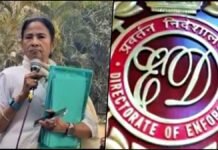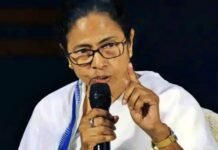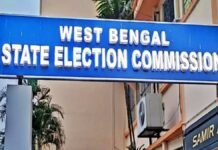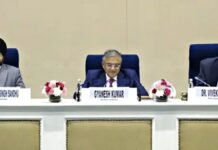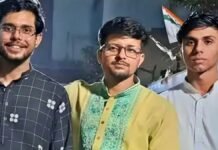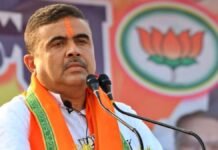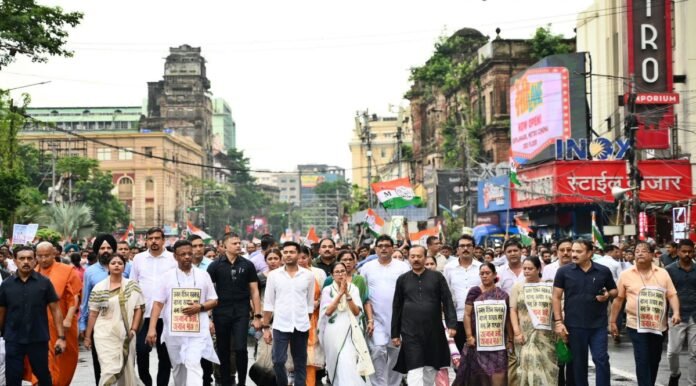
Key Points
- West Bengal CM Mamata Banerjee led a major Kolkata protest against the alleged profiling, detention, and deportation of Bengali-speaking migrant workers under BJP-ruled states.
- She strongly challenged the BJP to provide proof of Bengali workers being Rohingyas, calling the allegation “baseless and communal.”
- TMC accused the BJP of voter roll manipulation in Maharashtra, Delhi, Bihar, and potentially Bengal.
- Mamata claimed 22 lakh (2.2 million) Bengalis work across India, all with valid documents.
- The rally just ahead of PM Modi’s state visit saw thousands participate; heavy police deployment ensured order in Kolkata.
- Simultaneously, BJP leaders urged the Election Commission to remove “Rohingya” names from Bengal’s voter lists.
- Tensions flare as TMC pivots campaign to regional identity, citing recent incidents of Bengali harassment across India.
Kolkata: In a charged display of political defiance, West Bengal Chief Minister Mamata Banerjee on Wednesday led thousands through Kolkata’s streets, protesting what she called the “systematic targeting” of Bengali-speaking migrant workers in BJP and NDA-governed states. The Trinamool Congress (TMC) leader, flanked by party heavyweights, turned the spotlight onto cases of migrant worker detentions and alleged deportations to Bangladesh issues that have ignited fierce public debate in the run-up to Bengal’s crucial assembly elections.
Mamata’s Challenge: “Prove They Are Rohingyas”
At the heart of the controversy are claims by opposition BJP leaders that some migrant Bengali workers are ‘Rohingya infiltrators.’
“I challenge the BJP to prove any Bengali-speaking person is Rohingya. These wild allegations are meant to divide and harass our people. If you have proof, show the nation!”
Banerjee declared, addressing a crowd from College Square to Dorina Crossing in central Kolkata. She asserted that the 22 lakh Bengali migrant workers outside Bengal possess valid Indian ID and have been unjustly targeted for their language and identity.
Voter Roll Allegations: A Looming Election Flashpoint
Banerjee doubled down, accusing the BJP of systematic voter roll manipulation:
- “The BJP rigged elections in Maharashtra and Delhi by deleting names; they are doing this now in Bihar, and have plans for Bengal next,”
she warned, vowing to fight every attempt “inch by inch.”
TMC claims such tactics are designed to disenfranchise large swathes of the Bengali-speaking electorate, a core constituency with the assembly polls less than a year away.
Protest March Brings Kolkata to Standstill
The rally, which saw over 1,500 police personnel deployed for a 3-km route, caused traffic disruptions but remained peaceful amid the heavy turnout.
- Thousands of TMC workers and supporters joined, with solidarity rallies held in several Bengal districts.
- The timing just a day before Prime Minister Narendra Modi’s scheduled Bengal visit appears calculated to amplify the message.
BJP Hits Back: Demands “Rohingya” Voters Be Struck Off Rolls
While TMC cadres rallied on the streets, Bengal’s Leader of Opposition and senior BJP leader Suvendu Adhikari, along with 50 BJP MLAs, marched to the Election Commission office in Kolkata.
- They demanded the immediate removal of alleged “Rohingya” or “illegal” names from Bengal’s voter lists a move dismissed by TMC as “communal politics.”
Rising Linguistic Discrimination? Recent Triggers
The issue has gained traction following a series of incidents:
- The recent detention of Bengali migrant workers in Odisha
- Eviction drives affecting Bengali-speaking communities in Delhi
- A controversial foreigner tribunal notice served to a farmer in Cooch Behar, Assam
TMC says these signal a “pattern of linguistic and regional discrimination” against Bengalis beyond West Bengal.
Identity Politics Take Center Stage
As the election season heats up, the TMC is sharply focusing on regional identity and migrant rights framing the BJP’s actions as an assault on Bengal’s cultural fabric. Party strategists have indicated that defense of the Bengali identity will be central to their campaign messaging in coming months.
With political tensions running high and both parties sharpening their narratives, Bengal is poised for a fierce electoral battle where identity, migration, and the right to belong will likely dominate headlines.




































